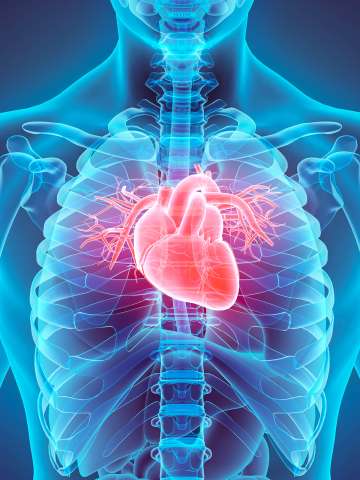Comprehending the Importance of Cardiology in Modern Healthcare Providers
Cardiology plays a crucial function in contemporary medical care, particularly as cardiovascular disease proceeds to be the leading source of mortality worldwide. Breakthroughs in diagnostics and therapy have actually changed person treatment, allowing earlier interventions and enhanced results. Moreover, the shift towards preventive cardiology encourages people to handle their wellness proactively. As modern technology remains to progress, the combination of ingenious solutions might better redefine cardiology's influence on public health and wellness, triggering a closer examination of arising patterns and their implications.
The Prevalence of Heart Problem and Its Impact on Public Wellness
Although heart problem stays the leading cause of fatality around the world, its influence prolongs far beyond specific clients to affect public wellness systems and economic situations. The high prevalence of heart problem places a considerable strain on health care resources, requiring increased financing for prevention, treatment, and recovery programs. Public health and wellness campaigns should address danger variables such as weight problems, smoking, and inactive lifestyles, which contribute greatly to the climbing incidence of heart conditions.Moreover, the financial burden connected with heart condition is immense, including not only straight medical expenses however also indirect expenses associated to shed efficiency and premature mortality. Communities face obstacles in managing these expenses, typically bring about differences in healthcare gain access to and end results. As the populace ages and lifestyle-related risks continue to escalate, the seriousness for efficient cardiology treatments becomes vital. Addressing heart disease is not only an issue of private health and wellness yet likewise a crucial public health and wellness top priority.
Advancements in Cardiac Diagnostics and Imaging Techniques
Current improvements in heart diagnostics and imaging methods have revolutionized the area of cardiology, enhancing the capacity to spot and monitor heart illness. Techniques such as cardiac MRI, CT angiography, and echocardiography have actually become progressively sophisticated, offering comprehensive pictures of cardiac frameworks and functions. These techniques permit the very early identification of problems like coronary artery illness, heart failure, and valvular disorders.Moreover, advancements in non-invasive diagnostics, such as wearable innovation and remote tracking gadgets, have equipped people and doctor. These devices promote real-time tracking of heart rhythms and other crucial indications, causing prompt treatments. Additionally, fabricated knowledge is being integrated right into imaging evaluation, improving precision and performance in medical diagnosis.
Developments in Treatment Choices for Heart Conditions
Recent developments in cardiology have caused significant technologies in therapy options for heart disease. These consist of sophisticated medical strategies that improve procedural outcomes and arising medications that offer new opportunities for treatment. As the area advances, these advancements play a vital duty in enhancing client treatment and outcomes.
Advanced Surgical Techniques
Technologies in medical strategies have changed the landscape of cardiology, providing brand-new expect people with heart disease. Minimally intrusive treatments, such as catheter-based interventions, have actually significantly reduced recuperation times and medical facility stays. Methods like robotic-assisted surgery boost accuracy, permitting specialists to navigate intricate anatomical structures with higher precision. In addition, advancements in imaging technology help with real-time visualization during treatments, boosting outcomes. Transcatheter aortic valve replacement (TAVR) exhibits a development in treating aortic constriction, enabling valve replacement without open-heart surgery. In addition, hybrid approaches that combine catheter-based and surgical techniques give customized solutions for numerous heart concerns. These sophisticated medical strategies not only enhance individual safety but also broaden therapy options, emphasizing the crucial function of advancement in modern cardiology methods.
Emerging Therapies and medicines
As the landscape of cardiology continues to progress, arising therapies and medications play a pivotal duty in improving therapy options for heart conditions. Developments such as unique anticoagulants and advanced lipid-lowering agents have actually transformed the monitoring of heart diseases, considerably decreasing patient morbidity and death. Additionally, the growth of gene treatments and regenerative medicine uses appealing avenues for dealing with problems previously regarded irreversible. Clinical trials are continually disclosing the efficacy of these treatments, pressing the boundaries of standard treatments. Additionally, the assimilation of digital wellness technologies assists in personalized medicine, permitting customized treatment plans based upon genetic and way of life variables. Jointly, these developments highlight the vibrant nature of cardiology, boosting client results and redefining requirements of treatment in modern-day medical care.
The Role of Preventive Cardiology in Individual Treatment
Preventative cardiology plays a necessary duty in person care by concentrating on the identification of danger aspects that add to heart problem. Via way of living modification strategies and early detection methods, health care providers can efficiently decrease the incidence of cardiovascular events - Cardiologist near me. This positive strategy not only boosts person end results but additionally advertises long-lasting wellness
Threat Element Identification
While heart diseases continue to be a leading root cause of morbidity and mortality worldwide, effective risk aspect recognition acts as a foundation of precautionary cardiology. Identifying threat aspects such as hypertension, diabetic issues, hyperlipidemia, and family members background is necessary for early treatment. Health care professionals use various evaluating techniques to review these aspects, allowing for customized precautionary measures. Furthermore, recognizing a patient's way of living choices, such as smoking cigarettes and physical inactivity, better informs threat evaluations. This extensive analysis allows medical professionals to develop tailored care plans focused on mitigating threats. By focusing on threat aspect recognition, healthcare systems can improve patient outcomes and decrease the total concern of cardio conditions, ultimately contributing to enhanced public wellness strategies and resource appropriation.
Lifestyle Modification Methods
A multitude of research studies highlights the important duty of lifestyle adjustment approaches in reducing cardiovascular illness threat. These strategies encompass official site dietary modifications, raised physical activity, cigarette smoking cessation, and weight administration. By embracing a heart-healthy diet plan abundant in fruits, veggies, entire grains, and lean healthy proteins, individuals can reduce cholesterol degrees and blood pressure. Regular physical activity strengthens the heart and improves overall cardio health. Additionally, quitting smoking significantly decreases the risk of heart disease and enhances healing rates for those with current conditions. Weight management better adds to cardio health and wellness by alleviating various other threat aspects such as diabetic issues and hypertension. Implementing these lifestyle alters not only advertises individual well-being however also serves as a cornerstone of precautionary cardiology in client care.
Very Early Discovery Strategies
Lifestyle alterations significantly contribute to reducing heart disease threats, but they are most reliable when combined with very early detection strategies. Preventative cardiology emphasizes the value of determining potential heart concerns before they rise right into serious problems. Techniques such as blood stress tracking, cholesterol testing, and advanced imaging technologies like echocardiograms play crucial duties in assessing cardiovascular wellness. Biomarkers and genetic screening likewise boost the precision of early discovery, enabling for tailored precautionary strategies. Normal cardiac threat assessments encourage medical care carriers to step in proactively, possibly stopping cardiovascular disease and strokes (Cardiology care). By integrating these early discovery techniques right into routine treatment, people can gain from prompt lifestyle treatments and targeted treatments, inevitably boosting results and improving lifestyle
Integrating Modern Technology Into Cardiology Practices
As innovations in innovation remain to improve various areas, the integration of ingenious devices and systems right into cardiology techniques has ended up being essential for enhancing individual treatment and end results. Telemedicine systems allow cardiologists to monitor clients from another location, improving access to care while decreasing the problem on medical care centers. Wearable tools, such as smartwatches, make it possible for continual heart rate tracking, informing both physicians and clients to prospective problems in real-time. In addition, artificial intelligence (AI) is being used to examine huge quantities of heart information, helping in very early medical diagnosis and personalized treatment plans. Advanced imaging strategies, consisting of 3D echocardiography, enhance visualization of heart frameworks, resulting in a lot more exact treatments. Electronic health documents (EHRs) enhance individual information management, making certain that cardiologists have instant access to important data. With each other, these technical improvements are transforming cardiology, advertising positive management and boosted health and wellness outcomes for people with cardiovascular conditions.
The Significance of Patient Education And Learning and Involvement
Individual education and learning and interaction play a critical function in the administration of cardio health and wellness. By gearing up individuals with knowledge about their conditions, therapy choices, and way of living adjustments, health click over here care companies encourage individuals to take an energetic duty in their care. This positive strategy can result in enhanced adherence to suggested medications, dietary modifications, and workout regimens, inevitably decreasing the threat of complications.Engagement also promotes a solid patient-provider partnership, encouraging open communication and count on. When individuals feel notified and entailed, they are more likely to voice worries and ask concerns, which can bring about far better clinical results. Furthermore, instructional resources, such as workshops or digital platforms, can enhance understanding and promote self-management techniques. Generally, focusing on person education and learning and engagement is necessary for boosting cardio wellness, boosting top quality of life, and reducing healthcare prices linked with heart diseases.
Future Fads in Cardiology and Their Possible Influence

Frequently Asked Inquiries
What Way Of Living Adjustments Can Lower Heart Problem Danger?
The current question addresses way of living modifications that can considerably decrease cardiovascular disease threat. Cardiology Jupiter. Adopting a well balanced diet plan, taking part in regular exercise, preserving a healthy weight, taking care of anxiety, and preventing cigarette can significantly improve cardio health and wellness
How Can I Recognize Early Indicators of Heart Issues?
Recognizing early signs of heart troubles involves surveillance signs such as chest discomfort, lack of breath, tiredness, and uneven heartbeat. Prompt understanding of these indications can trigger essential medical evaluation and intervention for far better outcomes.
What Are the Distinctions In Between Cardiologists and Cardiac Surgeons?
The distinctions between cardiologists and heart cosmetic surgeons exist in their roles; cardiologists largely take care of and diagnose heart disease via non-invasive techniques, while heart surgeons do surgeries to fix architectural heart concerns. Each plays an important, unique duty.

Just how Usually Should I Obtain My Heart Health And Wellness Checked?
The frequency of heart health checks differs based upon private danger elements. Generally, grownups ought to undergo analyses each to two years, while those with present problems may call for more regular assessments as suggested by health care experts.
What Duty Does Genetics Play in Heart Problem Threat?
Genetics substantially influences heart disease threat, with domestic patterns indicating acquired conditions. Details genes can incline individuals to high blood pressure, cholesterol problems, and various other cardio problems, highlighting the significance of hereditary screening in reviewing heart health and wellness. Heart condition remains the leading reason of death around the world, its impact prolongs much beyond specific patients to impact public health systems and economic climates. Public wellness initiatives have to address danger factors such as weight problems, smoking, and inactive way of livings, which add significantly to the climbing incidence of heart conditions.Moreover, the economic problem linked with heart disease is enormous, incorporating not only direct medical expenses yet likewise indirect costs connected to lost productivity and premature death. Preventative cardiology plays an important click to investigate function in person treatment by focusing on the identification of danger variables that add to heart disease. Synthetic intelligence (AI) and maker discovering are boosting diagnostics and patient monitoring, allowing early discovery of heart conditions. The distinctions in between cardiologists and heart surgeons lie in their roles; cardiologists largely manage and diagnose heart conditions through non-invasive techniques, while cardiac specialists execute medical treatments to remedy architectural heart concerns.